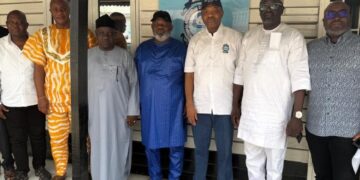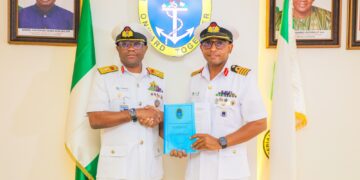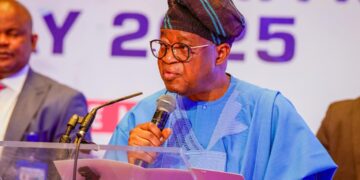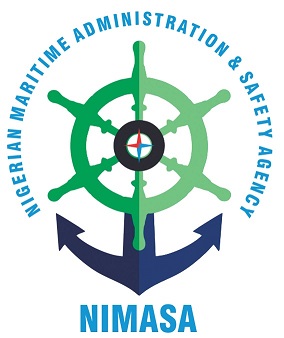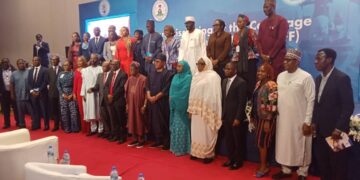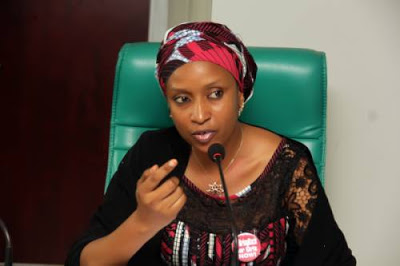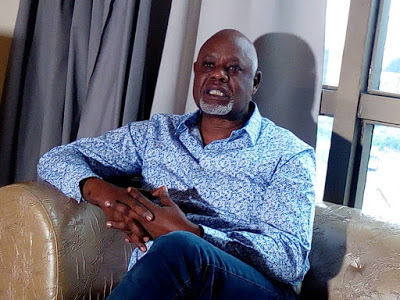The concessioning of the nation’s
seaports has brought about more efficient service delivery as well as increase
in revenue generation by the Federal Government, the Nigerian Ports Authority (NPA)
has said.
seaports has brought about more efficient service delivery as well as increase
in revenue generation by the Federal Government, the Nigerian Ports Authority (NPA)
has said.
The Managing Director of the NPA, Hadiza Bala Usman, stated this on Monday while receiving members of the National Association of Government Approved Freight Forwarders (NAGAFF) on a courtesy visit to her at the NPA Headquarters in Marina, Lagos.
The MD described the port
concession exercise, which was done about 13 years ago, as a successful initiative
that has benefited the maritime industry.
concession exercise, which was done about 13 years ago, as a successful initiative
that has benefited the maritime industry.
She assured on further
improvement in terms of operational efficiency even as the ports have
experienced increased vessels calls at the ports.
improvement in terms of operational efficiency even as the ports have
experienced increased vessels calls at the ports.
She said, “there could be
improvement as it relates to deployment of operational efficiencies across our
ports, but the history of where the ports were before the concession are clear.
Nigerian port concessioning is a model that is being used globally to indicate
a clear improvement in efficiencies.”
improvement as it relates to deployment of operational efficiencies across our
ports, but the history of where the ports were before the concession are clear.
Nigerian port concessioning is a model that is being used globally to indicate
a clear improvement in efficiencies.”
She added that: “even with our
revenues as government agency quadrupled after the concession. Clearly, the
concession is a success story.”
revenues as government agency quadrupled after the concession. Clearly, the
concession is a success story.”
The NPA MD gave assurance that
the current revenue of the concession agreement would address existing gaps in
the port system, as the opportunity now exits to check areas where compliance
had been short on the part of all the stakeholders.
the current revenue of the concession agreement would address existing gaps in
the port system, as the opportunity now exits to check areas where compliance
had been short on the part of all the stakeholders.
She made clear that under the
planned review, there would be sanctions against any of the parties found to be
defaulting.
planned review, there would be sanctions against any of the parties found to be
defaulting.
Her words: “we are looking at
obligations by the respective parties, the Nigerian Ports Authority and the
concessionaires. Some of the key takeaways from the review would be that there
would be sanctioning on both sides, meaning sanctioning for non-compliance by
the concessionaires and also by government.
obligations by the respective parties, the Nigerian Ports Authority and the
concessionaires. Some of the key takeaways from the review would be that there
would be sanctioning on both sides, meaning sanctioning for non-compliance by
the concessionaires and also by government.
“If government, for example, is
required to maintain a particular depth of draught, and government does not do
that, there will be a clear penalty that government has to take for not meeting
its obligations.
required to maintain a particular depth of draught, and government does not do
that, there will be a clear penalty that government has to take for not meeting
its obligations.
“This is the new consideration
we are looking at reflecting in the concession agreement. These were
recommended to us by a consultant engaged by the World Bank to support us and
we are working with the terminal operators on what needs to be done to conclude
on this review.”
we are looking at reflecting in the concession agreement. These were
recommended to us by a consultant engaged by the World Bank to support us and
we are working with the terminal operators on what needs to be done to conclude
on this review.”
Speaking also, the NAGAFF
President, Chief Increase Uche, who led the NAGAFF delegation, appealed to the
management of the NPA to address all barriers that had affected port
productivity.
President, Chief Increase Uche, who led the NAGAFF delegation, appealed to the
management of the NPA to address all barriers that had affected port
productivity.
He noted that that the freight
forwarders had remained at the receiving end of the high cost of doing business
in the port, a situation that has continued to suppress the ease of trading.
forwarders had remained at the receiving end of the high cost of doing business
in the port, a situation that has continued to suppress the ease of trading.



